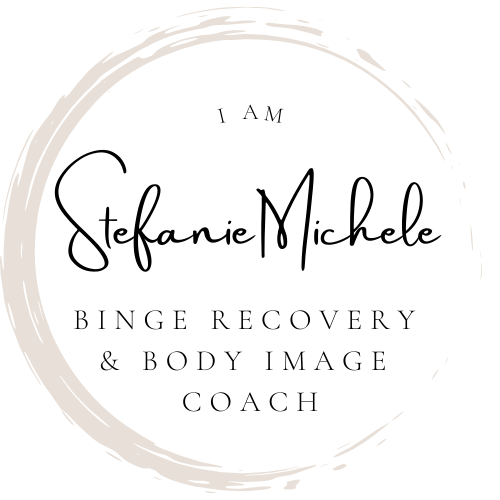Avoidant Attachment & Food
This is the second installment of the three-part series about how attachment styles can relate to our relationship with food.
(If you missed the first installment, you can find it here!)
Today, let’s talk about the second attachment style, called Avoidant-Attachment.
People with an avoidant attachment style present as highly independent and self-sufficient. They have a low tolerance for “needing” others (ie. depending on anyone or anything), and pull back from relationships when they start to feel too intimate.
As the name implies, avoidant styles avoid. Early emotional bonds with their caregivers may have suggested that emotional closeness was either not available or not welcome; and in order to stay safe, the child may have compartmentalized their own emotions to the degree that they learned to stop feeling them, or at least learned to dismiss and minimize them as important.
Likewise it can go with hunger and food.
Hungry? No. That’s being vulnerable to a need.
Enjoy simple pleasures like chocolate or ice cream? No. That’s letting my guard down.
An avoidant-style is more likely to suppress than to express. To push hunger away because there might not be enough anyway. When the need is so deep and unmet, the well feels like it cannot be filled, and that is too vulnerable. Best to not need at all.
Of course, this is not a conscious choice, and we don’t set this up logically in our strategy centers when thinking about food. It just tends to be the translation if attachment is conflated with food (which happens quite often where food and/or weight is a value system in the family, especially to the primary caregiver.)
I am sharing my own experience in today’s case study, as I have some avoidance in me and a story that illustrates this dynamic…
While a lot of my relationship with food was actually disorganized, avoidance was a part of that disorganization.
When I was sixteen years old, I had a friend that I spent a lot of time with. We thought a lot alike, and I started to over-identify with her (moving towards unhealthy attachment), which felt both exhilarating and terrifying at the same time. I loved feeling seen and understood, but I also felt vulnerable to it somehow, like the other shoe was going to drop soon and it would be taken from me.
One day, I was at her house with another friend of mine and I went to the bathroom. After I was finished, I left the bathroom and started making my way to my friend’s bedroom where we had all been hanging out. As I approached, I heard my friend say something to my other friend about me that was not cruel or unkind, but matter of fact. She was making an observation about a guy that I liked and said that she didn’t think he liked me back.
As I heard those words, I felt STUNG. I remember this day like yesterday — the blood rushing through my body, the heat in my face, my heart beating through every pulse point. My stomach dropped like I had been punched.
In that moment, I felt two things: a sense of rejection from the guy that I liked, whom apparently didn’t like me back; and an understanding that this close friend of mine had an opinion that she hadn’t shared with me, which also read as rejection. I felt closed off from her, like I had been so stupid to believe that we were somehow of the same mind (representing my unhealthy attachment to her in the first place, as I was over-identifying with her and unable to tolerate feeling separate from her).
I don’t know how long I stood there — I remember wearing black pants, a white t-shirt, and had a beige scrunchie on my wrist; I can still remember my outfit, so imprinted was this moment. My physical, emotional reaction suddenly gathered itself up, went into a box, and moved up in to my brain, where I started thinking.
About food.
Namely, I started thinking about how I was going to restrict my food.
I remember this plan coming into formation, and I remember the urgency with which I mapped it out. I was already inside of a restrictive ED at this time, but I remember this moment as catapulting me into a new realm of it, like it was reaffirming exactly why I was restricting in the first place. To assert that I DID NOT F*CKING NEED.
I don’t need YOU, I don’t need HIM, I don’t need anyone GET AWAY FROM ME!
I withdrew from conversation after finally re-entering the room, and I remember my friend asking me what was wrong, and I just stayed cold.
I had my plan.
And while my pattern with food (and even this friendship itself) ended up becoming more disorganized over time, this incident was a perfect example of how I used food to protect myself through the lens of avoidance.
I was hurt, I was rejected, and I dealt with that rejection by rejecting. I pulled away from the friendship, I pulled away from my emotions, I pulled away from food. I would not be caught needing.

